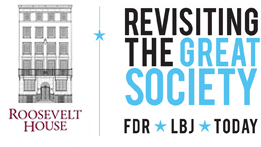Frances Fox Piven
-
Frances Fox Piven’s work reflects a preoccupation with the uses of political science to promote democratic reform. Piven is a scholar-citizen, equally at home in the university and in the world of politics.
Her Regulating the Poor, co-authored with Richard Cloward, is a landmark historical and theoretical analysis of the role of welfare policy in the economic and political control of the poor and working class. First published in 1972 and updated in 1993, it is widely acknowledged as a social science classic. She also co-authored Poor Peoples’ Movements (1977) which analyzes the political dynamics through which insurgent social movements sometimes compel significant policy reforms. Piven and Cloward’s The New Class War (1982, updated 1985), The Mean Season (1987), and The Breaking of the American Social Compact (1997) traced the historical and political underpinnings of the contemporary attack on social and regulatory policy. In Why Americans Don’t Vote (1988; updated as Why Americans Still Don’t Vote in 2000) they analyzed the role of electoral laws and practices in disenfranchising large numbers of working class and poor citizens, and the impact of disenfranchisement on party development. And in 1992, Piven edited Labor Parties in Postindustrial Societies. In The War at Home, Piven examines the domestic causes and consequences of the foreign wars launched by the Bush administration. Most recently, in Challenging Authority (2006), she develops a theoretical perspective on the interplay of social movements and electoral politics in American political development. In 2009, she published Keeping the Black Vote: Race and the Demobilization of American Voters, an examination of voter suppression in American politics, with her co-authors Lorraine C. Minnite and Margaret Groarke.
Piven’s accomplishments as a scholar are intertwined with her political reform efforts. She collaborated with the late George A. Wiley, the leader of the 1960s welfare rights movement in the United States, and developed the strategy that led to a liberalization of welfare in the 1960s. These reforms resulted in a major reduction in extreme poverty, and also precipitated the current furor in the U.S. over “welfare reform.” She was a founder in 1983 of Human SERVE, an organization that promoted the idea that if citizens were allowed to register to vote when they apply for aid from government programs or for drivers licenses, historic administrative encumbrances on the right to vote could be overcome. Human SERVE’s approach was incorporated in the National Voter Registration Act of 1993, popularly known as the “motor voter bill.”
Piven was awarded an Honorary Doctor of Humane Letters at Adelphi University in l985, annd at St. Rose College in 2000; a Guggenheim Fellowship in 1973 and of a Council of Learned Societies Fellowship in 1982. She has held visiting professorships in various European countries, including a Fulbright Distinguished Lectureship at the University of Bologna in 1990. She has been both Co-chairperson of the Annual Program and Vice-president of the American Political Science Association, as well as Vice-president and President of the Society for the Study of Social Problems. She chairs the Editorial Committee of the Board of the New Press. She was the 2007 President of the American Sociological Association.
Winner of the 1972 C. Wright Mills Award of the Society for the Study of Social Problems, Piven also received the Eugene V. Debs Foundation Prize in 1986 for “published work which evidences social vision and commitment to social justice.” In 1991, she was the recipient of the Lee/Founders Award of the Society for the Study of Social Problems for “distinguished career-long contributions to the solution of social problems;” in 1993, she received the President’s Award of the American Public Health Association; in 1994, for her work in the field of voter registration reform, she received the 1994 Annual Award of the National Association of Secretaries of State, and a year later the Tides Foundation Award for Excellence in Public Advocacy. In 1995 she was the first recipient of the Lifetime Achievement Award of the Political Sociology Section of the American Sociological Association; in 1998 she received the Mary Lepper Award from the Womens’ Caucus of the American Political Science Association. In 2000 she received the American Sociological Association’s Distinguished Career Award for the Practice of Sociology; in 2001 she was the recipient of the Distinguished Career Award of the Council on Social Work Education; in 2003 she was awarded the American Sociological Associations Award for the Public Understanding of Sociology; and in 2004 she received the Charles E. McCoy Lifetime Achievement Award from the New Political Science Section of the American Political Science Association.













Connect with Roosevelt House